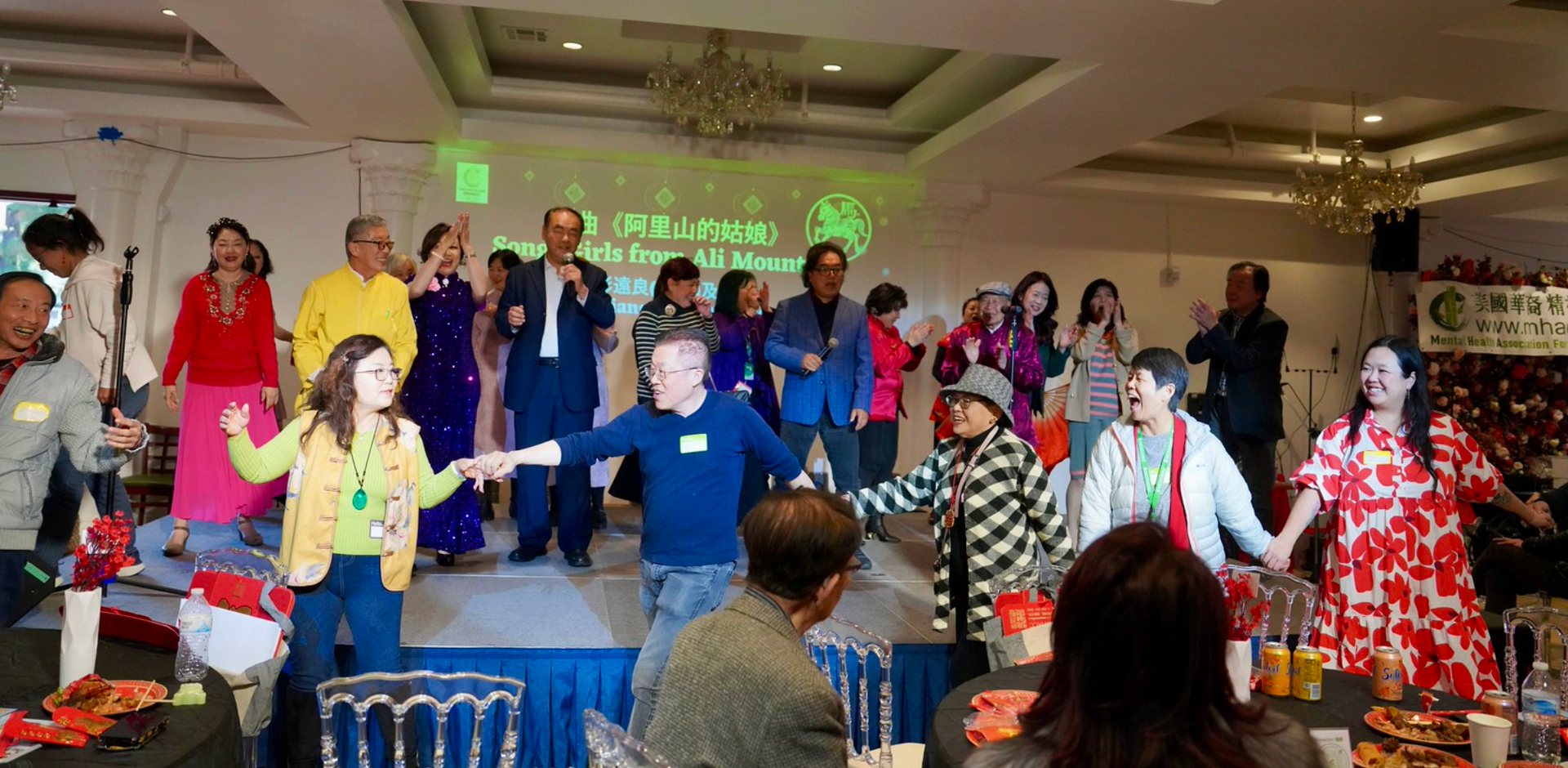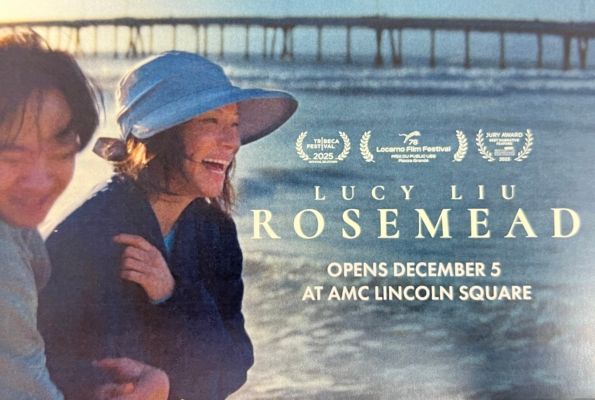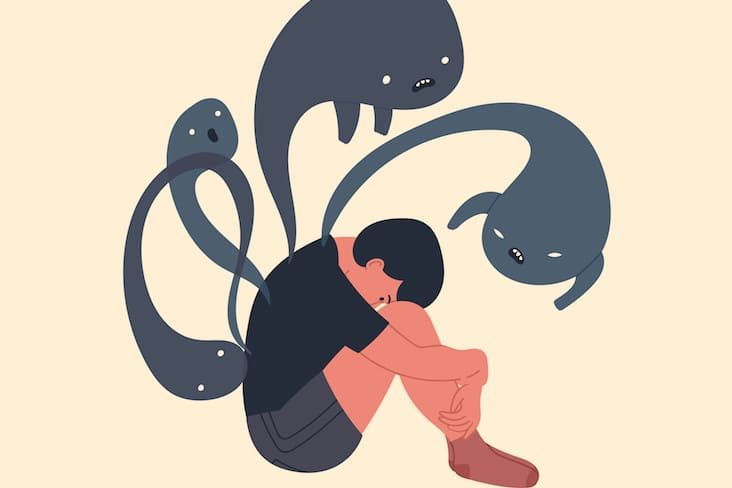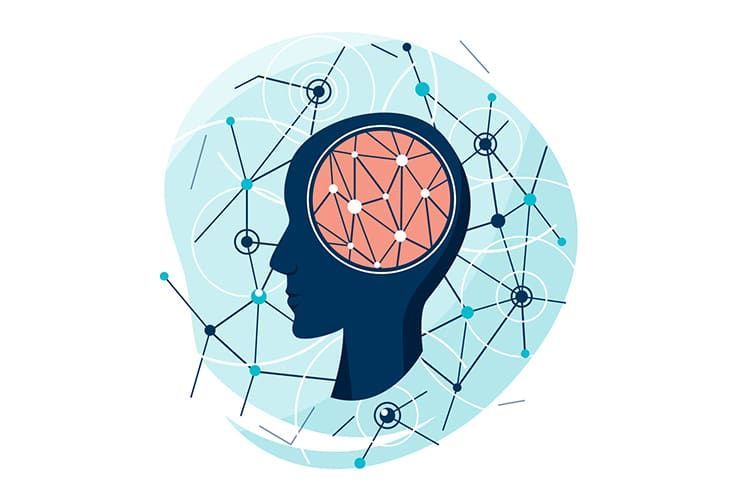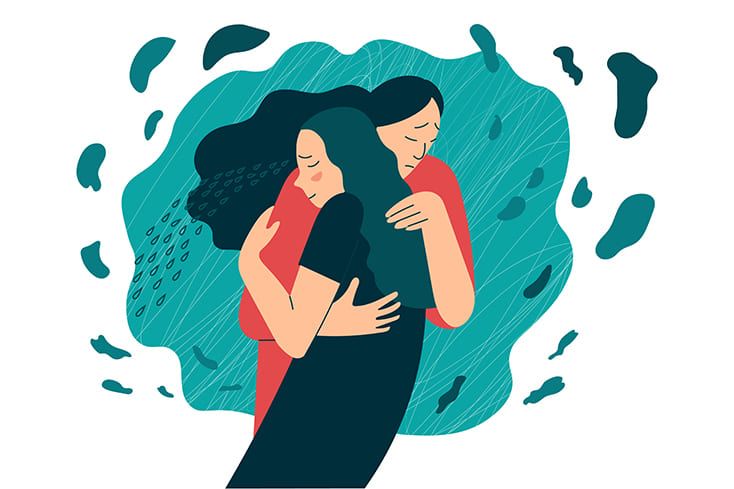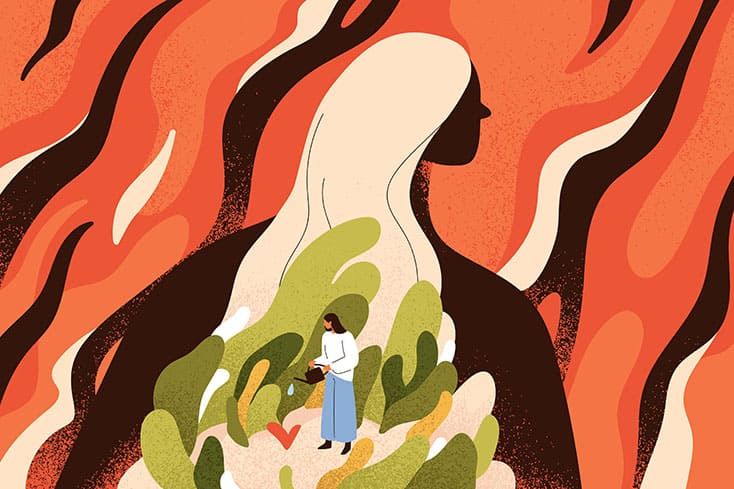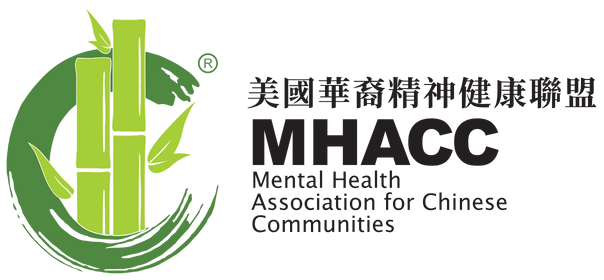我們的故事 | Our Story | By Grace Travinsky
MHACC 雙語部落格 Bilingual Blog
Scroll down for the English Version ⬇️
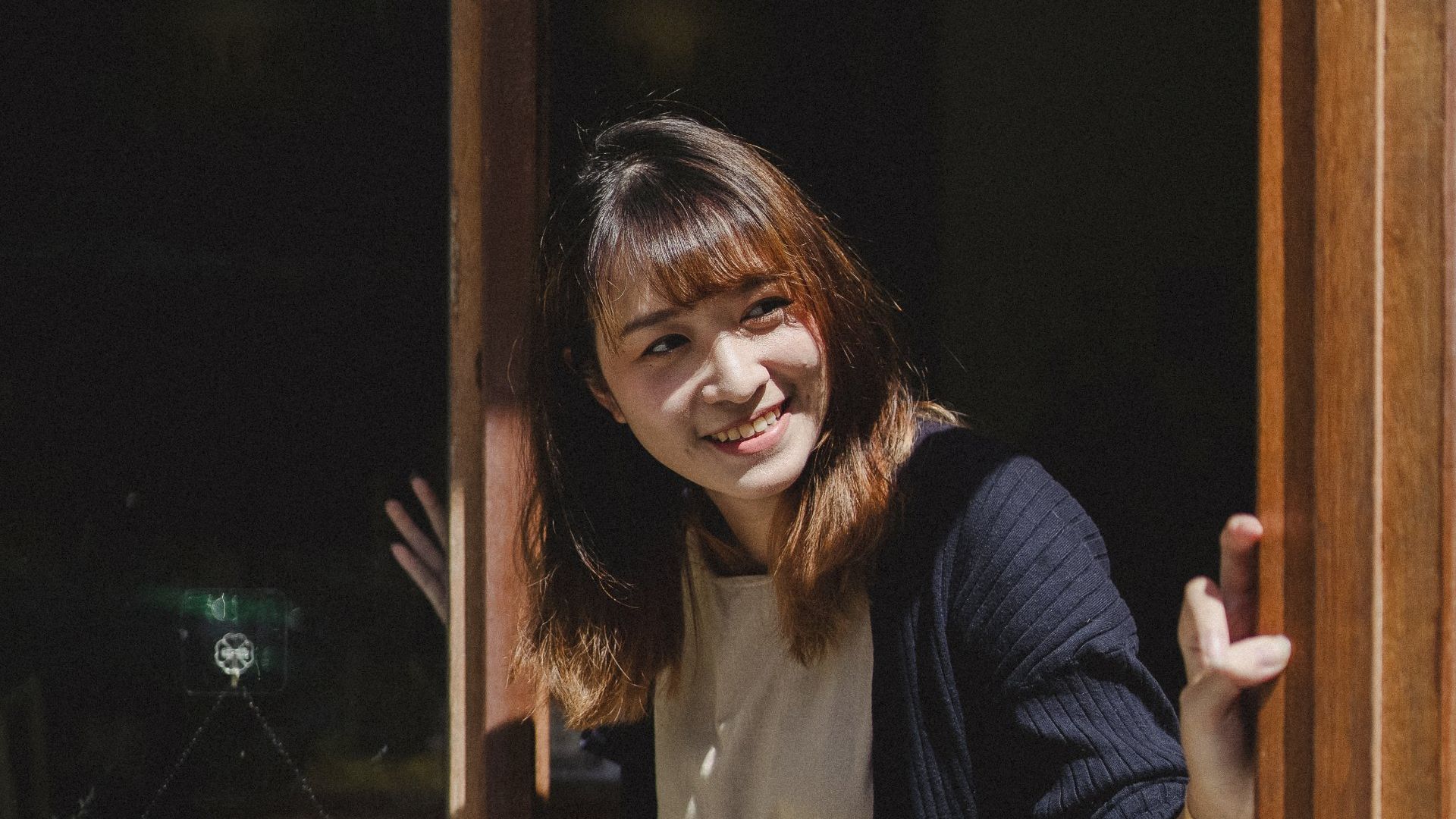
"我們的故事"
作者:Grace Travinsky
翻譯:Shirley Gauf
十二年前的一天,我在辦公室裡,突然接到我女兒Tanya 的電話,那時她是加州大學洛杉磯分校的大四學生。我有些驚訝在中午時分接到她的電話。 "嗨!媽媽!"她說:"我的精神科醫生想要跟你說話"。Tanya 把電話交給醫生,我不知道發生了什麼事,我甚至不知道Tanya 在看精神科醫生。醫生告訴我她已經看Tanya 有六個多月了,Tanya 需要退學,回家治療,因為Tanya 被確診患上精神分裂症。
我的眼睛茫然地盯著辦公室的牆壁,單調的嗡嗡聲開始湧入我的頭腦。過了一會兒,我終於含糊地提出一個問題:"Tanya 能夠完成她最後一個學期並畢業嗎"?
聰明、 快樂、 好學、富於創造性又充滿愛心— 我通常就是如此形容Tanya 這孩子。她有魄力,不斷拓寬邊界;她的幼兒園老師曾經告訴過我,Tanya 是她所教過的最有自信的孩子。到了高中時期,Tanya 表現得自信又獨立。在音樂方面很有造詣,是加州一級的田徑運動員,當選同學會的公主,學業優異並且有著活躍的社交生活。想像著她將成為未來的女比爾• 蓋茨,我曾是一個驕傲的母親。卻接到那通來自三千里以外,從現實上感覺彷彿更加遙遠的,意想不到的,可怕的電話。隨後的十二年來,Tanya 的生活發生了戲劇性的轉變和挑戰。因為她不能維持與人的聯繫,她的人際關係受損;由於長期服用各種藥物,她的體重忽上忽下;她得了二型糖尿病和第四期甲狀腺癌。
她和我一起住在三藩市的家裡,又與她在德克薩斯州的父親住過,後來跟我搬到紐約,曾住過政府支助的住房社區,現在與她的男朋友生活在紐約市的布朗克斯區。在這期間,她出入精神病院十多次。每次住院少則兩週,多則長達八個月之久。由於她的第一個家庭醫生漠不關心,導致她的甲狀腺癌到第四期才被診斷出來,儘管經過所有這些挑戰,Tanya 仍找到了力量,她能夠通過網路完成她的大學學業,現在正準備進入研究所繼續深造,同時她還在持續對抗甲狀腺癌。
她得到一群充滿溫情愛心的專業人士的幫助,包括她的精神科醫生、 心理醫生、 社工、 輔導員和其他醫護人員。他們的支持的確獲得了非比尋常的結果;沒有他們,Tanya 不會有她今天的成就。
在Tanya 勇敢地面對精神分裂症的挑戰的同時,我們感到失落、無奈且沮喪。直到 Tanya 在三藩市的治療師提到一個稱為NAMI 的組織,我們才感到求助有門。但那時我的工作繁忙,排滿的日程不給我足夠的時間去參加互助團體或課程。直到2005年我們在紐約市落地生根後,我們終於進入紐約 NAMI 的大紐約分部。從那天起,我們一直參與這種不斷成長的活動,這對我們家每一個人的生活都產生非常積極的影響。
我的大女兒Nina 和我參加了NAMI 的家庭對家庭的課程,也加入家庭支持小組及各種研討會,
從而我們學到所有我們能學到的知識來盡力幫助Tanya。我們意識到,照顧和支持患有精神疾病的家庭成員,挑戰傳統智慧;我們學會瞭如何在不增加額外壓力的情況下更好地與Tanya 溝通;我們學會如何與Tanya 不起衝突地共度快樂又放鬆的時間;我們學會如何高度與Tanya 的醫療小組合作來幫助她康復。但最重要的是,我們瞭解了照顧自己的重要性,從而才能夠為Tanya 提供必要的愛和支助。
十二年後的今天,我們有不少的遺憾,但也贏得了很多的成就。難以想像生活若是另外一種情況又會怎樣,但重要的是,Tanya 和作為她的家人的我們,面對了挑戰而倖存下來。我們蛻變成一個更強壯的整體。我曾經噤默無聲,但現在我能出口傳達樂觀和希望的言語。我講 Tanya 的故事,我分享我的故事。即使你覺得太陽不會再升起,但聽了我們的故事,讓你感到還是有地方,有人可以為你在黑暗中提供光明,直到太陽返回。隨著遺傳研究的迅速進步,我滿懷希望,相信更有效的治療方法— 甚至治愈— 也會從地平線上升起。
注:Grace Travinsky 現任全美精神疾病聯盟新澤西分部(NAMI NJ)董事會成員
"Our Story"
Written by: Grace Travinsky
Translated by: Shirley Gauf
Twelve years ago as I was sitting in my office I received a phone call from my daughter Tanya, who was at the time was a senior at UCLA. I was surprised by the midday phone call from my daughter. “Hi Mom,” she said. “My psychiatrist wants to speak with you.”
Tanya handed the phone to the doctor. I didn’t know what to expect; I didn’t even know Tanya had been seeing a psychiatrist. that the doctor told me that she had been seeing Tanya for over six months.
That Tanya was going to withdraw from school and come home for treatment.
That Tanya had been diagnosed with schizophrenia.
My eyes stared blankly at the wall on the far side of my office and a dull hum began to flood my head. Eventually I was able to muster a question: “Will Tanya be able to finish her last quarter and graduate?” Bright, happy, loving, inquisitive and creative—that’s how I would describe Tanya as a child. She was driven and pushed the boundaries whenever she could. Tanya’s kindergarten teacher once told me that Tanya was the most self-confident child she had ever taught. By high school, Tanya was confident and self-sufficient. She was an accomplished musician, state-level track and field athlete, homecoming princess and who also excelled academically with an active social life. I was a proud mother imagining a future female Bill Gates in the making. Then out of the blue came that dreadful phone call from nearly 3,000 miles away and from a reality that seemed even further. In the dozen years since, Tanya’s life has taken dramatic turns and challenges. Her personal relationships have suffered as she has found it hard to maintain connections. Her psychotropic meds would work for a while but then seem to suddenly stop. Her weight would yoyo up and down and she developed type II diabetes and stage IV thyroid cancer—all consequences of those medicine cocktails.
She lived at home with me in San Francisco, with her father in Texas, then back with me in New York, then in supportive housing communities, and is now living with her boyfriend in the Bronx. These events all occurred in conjunction with about 10 psychiatric hospitalizations, which lasted as little as two weeks to as long as eight months. But through all of these challenges she has found strength. Despite the indifference of her first primary care doctor which led to a delayed diagnosis of her thyroid cancer until it was stage IV, Tanya was able to complete her undergraduate study online and is now preparing to enter graduate school. She has continued to fight back thyroid cancer.
The support she has received from a group of caring and compassionate professionals including her psychiatrists, psychologists, social workers, resident counselors, primary doctor, and other doctors has truly made the difference. Without them Tanya would not be here today.
At the same time as Tanya was bravely facing the challenges associated with schizophrenia, we felt lost, helpless, and frustrated. It wasn’t until Tanya’s therapist in San Francisco mentioned a group called NAMI that it seemed like there was somewhere to turn. But my hectic work schedule didn’t grant me and our family time to attend the support groups or classes. But when we landed in New York City in 2005, we walked right into the NAMI NYC Metro. From that day on, we have been involved in a relationship that has continued to grow and positively influence each of our lives.
My older daughter Nina and I took a NAMI Family-To-Family class, joined family support groups, and attended various seminars so we could learn all we could to help Tanya. We realized that to care for and to support a family member with mental illness defies conventional wisdom; we learned how to better communicate with Tanya without adding additional stress; we learned how to spend happy and relaxing time with Tanya without conflict; we learned how to best work with Tanya’s treatment team for her recovery. But most of all, we learned the importance of taking care of ourselves so that we could be around to provide the necessary love and support for Tanya.
Twelve years later we are here with lots of regrets and triumphs. It’s difficult to think about what life could have been. But what is important is that Tanya and we, her family, have faced the challenges, and have survived. We have emerged a stronger unit. Once left unable to speak, I now offer words of optimism and hope. I share Tanya’s story, I share my story, and I share our story to show that even if you feel like the sun will never rise, there are places and people that can provide you ray of light in the dark until the sun returns. And with the rapid advancement in genetic research, I am hopeful that more effective therapies—or even cures—are on the horizon too.
Grace Travinsky is now a Trustee At-Large on the NAMI NJ Board.
